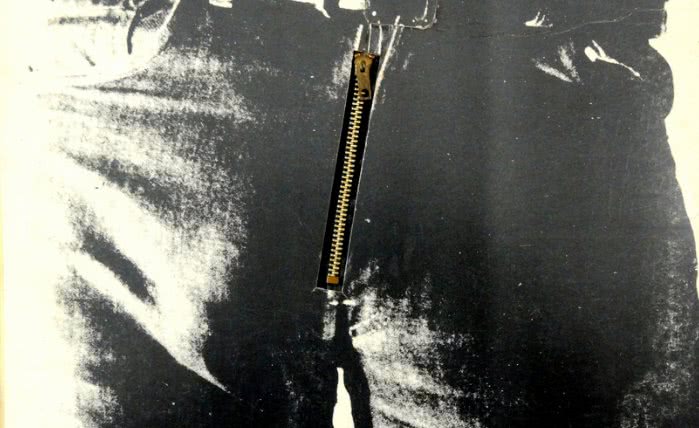The Rolling Stones, and when novelty packaging goes very badly

1971 was a turning point for The Rolling Stones.
It was the first year post-Beatles break up. It was the first year they were free of their restrictive contract with Decca Records, which meant it was also the year they launched their own imaginatively-titled Rolling Stones Records label.
It was also the year that Mick Taylor became a fully-fledged member (or at least his first contributions to an album), the first year they released an album that founding member (and secret Stones MVP) Brian Jones didn’t play on, and the first time Mick Jagger played guitar on an album.
Buoyed by this newfound freedom, they created Sticky Fingers: their most storied album up to that date, and certainly in the argument for the best Stones record ever (and the worst white-boy reggae band ever)
They tapped Andy Warhol to create the iconic album cover, giving him free rein, although with the below reasonable instructions from Jagger.
“The more complicated the format of the album, e.g., more complex than just pages or fold-out, the more fucked-up the reproduction and agonising the delays.”
Seems reasonable. Of course Warhol completely ignored this, and made an elaborate cover featuring a real metal zipper and protruding teeth, which could be zipped up and down to reveal a pair of white briefs.
Manufacturing delays were the least of the Stones’ issues. The real issue was the way vinyl is shipped, stored, and often stacked.
The zipper caused piles of records to sit slightly off-kilter, warping those sandwiched above the zipper. Those collectors who are aghast at the idea of stacking vinyl had similar problems with vertical racks of records, as the sharp metal zipper would rip and dent whichever record sleeve was pressed directly against it.
The major damage came from the shipping of the record, though, when hundreds of copies were stacked and wrapped tightly, causing the zipper to actually scratch the record within, making most of this initial stock unplayable and therefore unsellable.
The solution was to ship these with the zipper halfway undone (adding to the already sexually suggestive cover) so any damage was done to the middle label, rather than the vinyl itself.
Brilliant.
They soon discarded the zipper entirely, in favour for a less-damaging sleeve.
Check out ‘Moonlight Mile’ by The Rolling Stones:
This article originally appeared on The Industry Observer, which is now part of The Music Network.

































